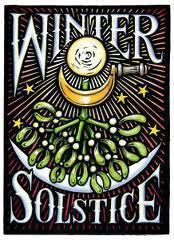Sally Ember's Blog, page 133
December 19, 2013
A Jew tries #contemplating the #Hell #Realms according to #Tibetan #Buddhism
As some of you know, I’m engaged in a mini-at-home #meditation #retreat in which I am attempting to #contemplate the experiences of beings who inhabit each of the six #Realms according to #Tibetan #Buddhism.
I have spent the last two months wending my way through each of the “upper” five and am now on the final, sixth and “lowest” of the Realms, the #Hell #Realm. Problem is, I don’t believe in Hell. This is a very big obstacle to doing this practice.
The first time I ever heard about this cosmology was in a ten-day teaching entitled “The Bodhisattva Peace Training,” conceived of and taught at that time by His Eminence Chagdud Tulku Rinpoche, one of the last authentic meditation masters to have been trained in Tibet before the 1959 Chinese invasion. He and his immediate family successfully fled to India and he eventually made his way to the USA. I met him and attended this teaching in the late 1980s, when he had been in the USA for several years.
I was a skeptic. I was resistant. I was only there because some of the people I most loved and respected in the world were already studying with and living at this main center in northern California and others I knew and respected and cared for were also studying with him while living elsewhere, including the friend who attended this retreat with me. We both came to it from New Hampshire where we both lived at that time. However, she was not at all skeptical or resistant, having met Chagdud Tulku in 1983 and already been practicing Tibetan Buddhism for several years.
I, on the other hand, came under duress. I felt coerced by my friends to “try this out.” But, what they meant was, DO IT. They were so convinced that this was “it” that they had sold everything to follow this teacher and live at this center, which they helped purchase for the community of practitioners, the sangha.
But I, like several others who came to this retreat who were refugees from the explosions that had just been occurring within Chogyam Trungpa’s Colorado sangha, felt more “no” than “yes” about the entire package. I listened, I took notes, I attended, I considered.
Some of what Rinpoche (which is what everyone called Chagdud Tulku because “Rinpoche” means “precious one” and is a Tibetan honorific reserved for well-respected teachers) taught made sense to me. Some of it even touched me deeply, resonated within my heart and echoed in my mind as if meeting old friends.
Then he got to the explanation of the Realms, specifically the Hell Realms, and I just sat there, stunned. The descriptions of the experiences of the beings relegated to living in these conditions for untold eons started with statements about how these beings had been cast into these lowest Realms due to their unfortunate actions, karma, in former lifetimes. Specifically, they must have committed murder, betrayal of high beings, or some other horrific acts to have “earned” this incarnational location.
I could live with the concept of karma just fine. Cause and effect, do this and expect that. It seemed a bit simplistic to me and somewhat castigating or threatening, but it had a kind of logic to it.
However, the rest was harder for me to swallow. Impossible, as it turned out. Rinpoche told us that there were many types of Hells and talked in detail about their conditions: freezing, burning, cutting, piercing; being forced to do repetitive, arduous work (think: Sisyphus); having one’s skin flailed off, regrowing it, then having it flailed off again, repeatedly; walking around in as much pain as we would feel if someone were scraping a fingernail on our bare eyeballs. And, more. Any one of these experiences, we were being told, could last for what would feel to these beings like eons, with no hope of reprieve. The best protection was never to land there. Rinpoche admonished us: “Be virtuous.”
I resented this attitude, which assumed that I and other students needed to be motivated by fear in order to be motivated to become a Buddhist practitioner. As a life-long contrary, hearing this kind of talk tended to push me in the opposite direction entirely. Then, Rinpoche got even more specific about the kinds of acts that landed one in a Hell Realm and I became increasingly insulted, even outraged.
At one point, when we were invited to ask questions, I raised my hand and asked something like this: “Do you really expect us to believe that all of this is real? Aren’t these just stories you tell children to frighten them into being ‘good’?” Yes, I was that disrespectful, something I am not proud of at all.
Rinpoche’s translator stared at me as if I had just cursed at him. Rinpoche, however, was tranquil, unperturbed.
NOTE: Rinpoche understood English quite well at this point, but his spoken English was difficult for most of us to understand. Sometimes he had someone who knew both Tibetan and English so that Rinpoche could teach in Tibetan, but this translator was tasked with rephrasing his Tibetan-syntaxed and oddly-accented English into more familiar English structures for the rest of us. She would take copious notes or listen as he spoke, then rephrase what he said whenever he paused for her to do so.
After Rinpoche responded to my questions, her translation went something like this: “Rinpoche says, ‘The Hell Realms are as real as this one. It is just your karma making it so you and most of us do not usually see, hear, or experience Hell Realms’ conditions right now. Consider yourself fortunate. Your karma has provided you with a precious Human birth. Use it wisely.’”
This did not help me one bit. Not then, and not for many years. In fact, I was so turned off by this and other experiences at this retreat and with my practitioner friends that I avoided learning any more about Tibetan Buddhism for eight more years. I would go visit them, but as friends. I would even see Rinpoche, who traveled with one or more of them and came East to New York or Boston a few times during those eight years, but not to learn anything he taught. Just to visit.
When I finally became more open to it (another long story), in 1996, it still took me several more years to understand and accept, even tangentially, all this Realms information. Which brings me to now, twenty-five years after that first exposure to the Hell Realms. I’m still on the fence.
I believe and I don’t believe. I know it’s possible that many types of experiences exist in many dimensions or realms that most of us do not perceive. I just don’t completely accept the entire story of the experiences as depicted in Tibetan books and by Tibetan Buddhist teachers of what these Realms are like.
I’ve struggled with these last two months’ assignments, feeling worse and worse about my lack of confidence in depictions of the experiences of beings in the Realms. I go back and forth between acceptance and rejection of these “facts.”
I can allow that Humans can live hellish lives, or parts of our lives can be hellish. Certainly some illnesses, injuries, chemical weapons or other horrible acts of war bring many types of hell to people and animals subjected to them. Napalm, nerve gas, cancer, amputations and phantom limbs, the D.T.s all fit into these stories perfectly.
For now, I’m sticking with that version. I’m just too Jewish or too American or too modern or too stubborn (maybe that’s redundant…) to believe in the Realms as depicted.
I do believe in the lessons they are meant to teach, especially the most important ones: Be grateful to be Human, to have been born (this time, anyway) into a life of relative ease and leisure. Be committed to continue to enact and amass more virtue in my life, both for others’ benefit and for my future karmic outcomes.
I can believe in the importance of gratitude and virtuous behaviors. I have thanked and thank again the late Chagdud Tulku Rinpoche (who left that body in 2002) and my current teacher, Lama Padma Drimed Norbu, for putting up with my difficulties and teaching me, anyway. Here are photos of Rinpoche before he left that body and of his new incarnation, and Lama Drimed, below.
Meanwhile, I have about a week to contemplate the experiences of Hell, real or imagined. Here I go.

December 18, 2013
Last Day for Pre-Orders for “This Changes Everything”
FINAL PUSH! last day for #pre-orders for my first ebook, original, unique #scifi/#romance/#paranormal novel with #Buddhist, #Jewish, #utopian themes, This Changes Everything, Vol. I of The Spanners Series, on iBooks, nook, KOBO thru 12/18; release date 12/19 will show great sales and ROCKET TCE to a high position on “best-seller” lists and get it more visibility IF pre-orders pour in.
Please help? Only $1.99. Starting 12/19 @ $2.99.
Give it as a #gift! Geared to older teens and adults.
Cover art by #Willowraven.
#Free excerpts here: https://www.smashwords.com/books/view/376197
Other links on http://www.sallyember.com (look to the right and scroll for the link you want: reviews, interviews, blog posts and buy links). THANKS! SHARE!

December 17, 2013
Author Q & A on Goodreads and Google On Air Hangout on Release Date of “This Changes Everything” Register!
Join ebook author, Sally Ember, Ed.D., for Q & A online chat on 12/19/13, Release Date of This Changes Everything, Volume I, The Spanners Series, on Goodreads, 9 AM – 12 PM PST, FREE.
Join Goodreads (also free), then use the link, below, to post question/comments and register in advance or on the day of the event. SHARE!
ALSO, simultaneously, on Google On Air Hangout via youtube: https://plus.google.com/u/0/events/cqk9o94v7ovcdbdbq8q6mn26dns
Links to reviews, interviews, blog posts and buy links as well as excerpts on author’s website http://www.sallyember.com
Cover art by Willowraven.
SHARE! Thanks!
SYNOPSIS: Dr. Clara Ackerman Branon, Ph.D., 58, is having the first of many home visits from holographic representations of five beings from the Many Worlds Collective (MWC), a consortium of planet and star systems all around the multiverse, over a thirty-year, increasingly Utopian period. Earth is being invited to join, formally, and the December, 2012, visit is the first one allowed to be made public. Making the existence of the MWC public means many Earthers have to adjust our beliefs and ideas about life, religion, culture, identity and, well, everything we think and are. Clara becomes the liaison for Earth, the Chief Communicator, between Earth and the MWC. This Changes Everything relates the events partly from her point of view, partly from records of meetings of varying groups of the MWC governing bodies, and partly from her Media Contact, Esperanza Enlaces, employing humor, poignancy, a love story, family issues, MWC’s mistakes and blunders, history, politics, paranormalcy and hope.

A Jewish Buddhist at Christmas/ Chanukah/ Solstice Time
Christmas and I are not friends. We are not even good neighbors. I was raised Jewish in a predominantly Jewish neighborhood, school system, and childhood. I was an insider in an outsider world every December.
Despite our over 75% Jewish population, the relentless Christian-ness of the USA permeated even our public schools. Most of our teachers and all of the school administrators were not Jewish. Therefore, we Jewish students were forced to learn and sing Christmas carols alongside our Christian classmates every year in music classes and choirs in our classes and assemblies. I mouthed but would not sing songs with lyrics like “Jesus, our God,” or “Christ, our King.” I refused to “celebrate,” but I would go along as required. I hated it.
All of my childhood and most of my young adult life, I hated Christmas. I hated the trees, the lights, the candy canes, the incessant carols on muzak almost everywhere we went. I hated the silly fashion and accessory affectations (reindeer hats, Santa sweaters, elves in snowglobes on chains, fake snow on windowsills) and the massively wasteful appropriation of space and time every December.
Christian adults would say ridiculous, ignorant things to me and other non-Christians, like: “Christmas isn’t religious; it’s American.” And, “It’s not a Christmas tree. It’s a holiday tree.” Or, my personal favorite, “You can celebrate Christmas and still be Jewish. I know lots of people who do!”
For a kid who feels oppressed by the pervasive and invasive Christmassification of everything for almost two months every year, it’s difficult to separate hating the holiday-ness from despising the people who rightfully celebrate it. I often did not succeed in making that distinction. I breathed a sigh of relief every December 26. Over. Yeah.
I celebrated the Solstice for a few years. We were tentatively friends, paganism and I. I even created a Solstice “advent” calendar with 13 “rays” of the sun, to be unfolded, one each of the thirteen days prior to December 21, each “ray” a quality or positivity we wanted to affirm or invite into our lives. That was fun and interesting, but ultimately not “mine,” either. I liked the symbols and intention, but Solstice and I did not remain close, either.
For about twenty years, I hostessed Chanukah parties for my mostly Christian friends and half-Jewish son (not Jewish at all, except by birth) and his Christian/Sufi father and then my Jewish/Mormon/Buddhist female partner because I like to make and eat Chanukah food and give presents. I created and shared an English lyric about visualizing miracles to be sung when lighting the Chanukah candles since the Jewish religious parts of the holiday and I parted ways when I was about ten years old. I tried to make Chanukah mine. It only kind of worked, and only for a while (mostly when my son lived with me). Chanukah and I gradually broke up.
Partly, this occurred because I became a Buddhist. That made “the holiday season” even more irrelevant. I not only do not celebrate Christmas, but don’t do much with Chanukah, either.
Each fall, I buy some gifts for friends and family members (honoring whatever they celebrate) when I can afford it, and wish people well for whatever they celebrate. But, I also try to keep to myself on the actual days of these holidays, since they’re not “mine.” I really do not celebrate or believe in them.
I do not miss these holidays. I do not feel left out. I do not feel angry. I do not feel deprived, alone, or otherwise sad or depressed. These just aren’t my holidays. I view them with slight amusement and a keen detachment over the last fifteen years, as if I were visiting from another culture (which I kind of am).
This year it is a little easier to escape both holidays because Chanukah and Christmas are not coinciding on anyone’s calendar. I can and do discretely and discreetly avoid them. It is easy to ignore the Solstice because I don’t feel a rhythm with the seasons much. That was disrupted mostly by my having left the parts of the USA that actually have distinct seasons to live in northern California in 2002.
I’ve gone through despising, hating, avoiding, celebrating, enjoying, participating, encouraging, hostessing, attending, bowing out to relinquishing December holidays over the four decades of my adult life. I’m quite happy, now, taking the parts I like (mostly some good food and a few songs, gift-giving and receiving, days off) and ignoring the rest.
I hope no one feels disrespected or patronized just because I don’t participate in or celebrate any holidays in the fall “holiday season” any longer.
Enjoy your November/December holiday(s). Really. Just don’t impose them on me.

December 16, 2013
Cheryl Morgan’s “Year in Review,” Part I
Check out Cheryl Morgan’s “Year in Review,” Part I, from her feminist perspective. Comment on her site and here! Interested in your opinions. Check back for Part II.
http://aqueductpress.blogspot.co.uk/2013/12/the-pleasures-of-reading-viewing-and_1839.html
Cheryl Morgan is the owner of Wizard’s Tower Press and the Wizard’s Tower ebook store. She blogs, reviews and podcasts regularly at Cheryl’s Mewsings.

December 13, 2013
#Desire Realm Torments and Teases
#Buddhist cosmology puts humans and animals together in what is translated as the #Desire Realm. The Realm I am #contemplating for this phase of my #retreat is The Hungry Ghosts (#Pretas) Realm, which comes “below” these two. Pretas are born into this Realm because of exhibiting strong possessiveness and desire in other lives. So, in all three of these experiences, desire is the culprit.
However, we can’t function without desire. Our motivations are rooted first in desire, even for the most altruistic intentions, until we are beyond all suffering and desire. Let me know when you achieve that; I haven’t met anyone yet who has. Even His Holiness, the Dalai Lama, speaks of anger and other common emotions that still arise for him. The major difference between someone at his level or close to that and most practitioners are two factors; how long the feeling lasts and what we do in response to it.
Most people, Buddhist practitioners included, get lost for a moment or longer (or forever, if the person has no skills or practice to deter it) in the intense emotions of the present circumstances. We also get lost in emotions from events in the past or while anticipating the future. Every interaction, every thing that occurs are opportunities to remember or forget.
The best signs I can hope for in my life due to practice are to experience these emotions less frequently, less intensely and for shorter durations and not to get lost in them. The goal is not the journey. But, part of being in the Desire Realm as a human is to have goals.
What does it mean to “get lost” in emotions? For me, this part of the journey looks like this: when I’m lost, it means I forget about the nondual, oneness truth of all existence. I can’t feel my intention to benefit all beings. I lose track of my ability to feel compassion or to be even a little bit unselfish. I cling completely to the false reality of my tiny physical and ego-ridden self as if “I” am all that matters, or matter the most.
Then, equally importantly, when I do get lost, I am tasked with not condemning myself and not giving up. Learning to accept my failings, have compassion for my forgetting, recognize my humanness and even have a sense of humor about myself. I attempt to take myself more lightly while keeping my goals in mind.
Ruthlessness without condemnation is the key: being honest enough to face my foibles without falling into self-negating, self-deprecating messages. Actually, I’m doing pretty well with this part. I accept who I am at almost 60 years old much better than many people do.
Interestingly, the fact that I do not judge myself as harshly or frequently as others judge me has caused me a few problems. Apparently, misery loves company. Judgers want to see that their judgments have a negative effect. In my experience, when I do not take their derision or evaluations personally, they take offense. They claim I’m not listening, I’m not respecting them. They feel that I’m judging them.
What a strange set of illusions we share! My response to all that self-induced misery for those people is to feel compassion for their being lost and not get lost, myself. For refusing to allow their torment to bother me, I become unpopular.
Oh, well. Luckily for me I stopped desiring popularity in adolescence. Wish the rest of the adults would grow up.
Until then, torments and teases in the Desire Realm continue and we do our best to ride them out and not make things worse. Join me in gentle humor at oneself and others (but keep your amusement about others to yourself if you want friends!).
Keep on.

December 11, 2013
Last 8 days for #pre-orders!
BIG PUSH! last 8 days for #pre-orders for my first ebook, original, unique #scifi/#romance/#paranormal novel with #Buddhist, #Jewish, #utopian themes, This Changes Everything, Vol. I of The Spanners Series, on iBooks, nook, KOBO thru 12/18; release date 12/19 will show great sales and ROCKET TCE to a high position on “best-seller” lists and get it more visibility IF pre-orders pour in.
Please help? Only $1.99. Give it as a #gift! Geared to older teens and adults.
Cover art by #Willowraven.
#Free excerpts here: https://www.smashwords.com/books/view/376197
Other links on http://www.sallyember.com (look to the right and scroll for the link you want: reviews, interviews, blog posts and buy links). THANKS! SHARE!

December 9, 2013
Being a “next-thing” Junkie
Addictions are the topic of many blogs, research studies, journal entries, news reports and conversations. At this point in the Western lexicon, someone can be “addicted” to practically anything: drugs or alcohol, of course; shopping; gambling; sex; food, particularly sugar, caffeine or wheat; fame; books; porn; the internet; and, any of a million possessions, collections, hobbies or activities.
Turns out I am genetically or personally lucky enough not to have an actual addiction, even by the above standards (unless you count obsessions as addictions, which is another discussion). However, I am about to confess what I discovered during my first six-week #Buddhist #meditation #retreat: I am a “next-thing” junkie. Whatever I am experiencing, regardless of how wonderful it is, how much I like it, I am always looking to the next phase.
When I am swimming, I fantasize about what I’ll do when I am finished. When I am writing, I consider when I will eat and what. When I am in the shower, I wonder about what I’ll write that day. During a meditation session, whatever practice or portion of the text we’re in, I want to be in the next part. When I’m silent, I want to talk. When I’m in conversation, I long for silence and solitude.
When I’m celibate, I daydream about sex. During sexual encounters, I want to have the aftermath, the closeness and intimacy of the more emotional kind, to be finished with the physical part. On and on.
This is my version of being a “Hungry Ghost,” a #Preta, one of the creatures doomed to exist for however long karma dictates who have extremely large bellies and very constricted throats: constantly starving and thirsty but never able to be satisfied. That is my dilemma: I am never satisfied, or not for very long.
I am not unique. I am not alone. In fact, I am in this way more mainstream, more ordinary than I am in almost any other component of my unusual life. When I brought this discover to my great #Tibetan #Buddhist teacher in the #Vajrayana #Nyingma #dzogchen lineage of #meditation, Lama Drimed, he talked to me about the known 51 “mental factors” that are considered part of the possible experience of sentient beings.
Want to know how many ways we can be caught up in experiences, thoughts, feelings? Fifty-one. Count ‘em.
Here they are:
THE 5 OMNIPRESENT (EVER-RECURRING) MENTAL FACTORS
1. Feeling (the first aggregate)
2. Recognition / discrimination / distinguishing awareness (the second aggregate)
3. Intention / mental impulse – I will …
4. Concentration / attention / mental application – focused grasping of an object of awareness
5. Contact – the connection of an object with the mind, this may be pleasurable, painful or neutral as experienced by the aggregate of Feeling.
THE 5 DETERMINATIVE MENTAL FACTORS
6. Resolution / aspiration – directing effort to fulfil desired intention, basis for diligence and enthusiasm.
7. Interest / appreciation – holding on to a particular thing, not allowing distraction
8. Mindfulness / Recollection – repeatedly bringing objects back to mind, not forgetting
9. Concentration / Samadhi – one-pointed focus on an object, basis for increasing intelligence
10. Intelligence / Wisdom – “common-sense intelligence”, fine discrimination, examines characteristics of objects, stops doubt, maintains root of all wholesome qualities.
THE 4 VARIABLE (POSITIVE OR NEGATIVE) MENTAL FACTORS
11. Sleep – makes mind unclear, sense consciousness turns inwards
12. Regret – makes mind unhappy when regarding a previously done action as bad, prevents the mind from being at ease.
13. General examination / coarse discernment – depending on intelligence or intention, searches for rough idea about the object.
14. Precise analysis / subtle discernment – depending on intelligence or intention, examines the object in detail.
THE 11 VIRTUOUS MENTAL FACTORS
(Note that 18 and 19 are not necessary always virtuous. The first 3 are also known as roots of virtue.)
15. Faith / confidence / respectful belief – gives us positive attitude to virtue and objects that are worthy of respect. Three types are distinguished, with the last one being the preferred type:
a. uncritical faith: motivation is for no apparent reason
b. longing faith: motivation is by an emotionally unstable mind
c. conviction: motivated by sound reasons
16. Sense of Propriety / self-respect – usually the personal conscience to stop negative actions and perform positive actions
17. Considerateness / decency – avoids evil towards others, basis for unspoiled moral discipline.
18. Suppleness / thorough training / flexibility – enables the mind to engage in positive acts as wished, interrupting mental or physical rigidity.
19. Equanimity / clear-minded tranquility – peaceful mind, not being overpowered by delusions, no mental dullness or agitation
20. Conscientiousness / carefulness – causes avoiding negative acts & doing good; mind with detachment, non-hatred, non-ignorance and enthusiasm
21. Renunciation / detachment – no attachment to cyclic existence and objects
22. Non hatred / imperturbability – no animosity to others or conditions; rejoicing
23. Non-bewilderment / non ignorance / open-mindedness – usually understanding the meaning of things through clear discrimination, never unwilling to learn
24. Non violence / complete harmlessness – compassion without any hatred, pacifist
25. Enthusiasm / diligence – doing positive acts (specifically mental development and meditation) with delight
THE 6 NON-VIRTUOUS MENTAL FACTORS
THE 6 ROOT DELUSIONS (Delusion is defined as any secondary mental factor that, when developed, brings about suffering and uneasiness to self or others.)
26. Ignorance – not knowing karma, meaning and practice of 3 Jewels, includes closed-mindedness, lack of wisdom of emptiness.
27. Attachment / desire – definition: not wanting to be separated from someone or something. Grasping at aggregates in cyclic existence causes rebirth & suffering of existence
28. Anger – definition: wanting to be separated from someone or something, can lead to relentless desire to hurt others; causes unhappiness
29. Pride – inflated superiority, supported by one’s worldly views, which include disrespect of others
30. Doubt / deluded indecisive wavering – being in two minds about reality; usually leads to negative actions
31. Wrong views / speculative delusions – based on emotional afflictions. Distinguished in 5 types: belief in the self as permanent or non-existent (as opposite to the view of emptiness); denying karma, not understanding the value of the 3 Jewels; closed-mindedness (my view -which is wrong- is best); wrong conduct (not towards liberation)
THE 20 SECONDARY NON-VIRTUOUS MENTAL FACTORS
Derived from anger:
32. Wrath / hatred – by increased anger, malicious state wishing to cause immediate harm to others
33. Vengeance / malice / resentment – not forgetting harm done by a person, and seeking to return harm done to oneself
34. Rage / spite / outrage – intention to utter harsh speech in reply to unpleasant words, when wrath and malice become unbearable
35. Cruelty / vindictiveness / mercilessness – being devoid of compassion or kindness, seeking harm to others.
Derived from anger and attachment:
36. Envy / jealousy – internal anger caused by attachment; unbearable to bear good things others have
Derived from attachment:
37. Greed / avarice / miserliness – intense clinging to possessions and their increase
38. Vanity / self-satisfaction – seeing one’s good fortune giving one a false sense of confidence; being intoxicated with oneself
39. Excitement / wildness / mental agitation – distraction towards desire objects, not allowing the mind to rest on something wholesome; obstructs single pointed concentration.
Derived from ignorance:
40. Concealment – hiding one’s negative qualities when others with good intention refer to them this causes regret
41. Dullness / muddle-headedness – caused by fogginess which makes mind dark/heavy – like when going to sleep, coarse dullness is when the object is unclear, subtle dullness is when the object has no intense clarity
42. Faithlessness – no belief of that which is worthy of respect; it can be the idea that virtue is unnecessary, or a mistaken view of virtue; it forms the basis for laziness (43)
43. Laziness – being attached to temporary pleasure, not wanting to do virtue or only little; opposite to diligence [25])
44. Forgetfulness – causes to not clearly remember virtuous acts, inducing distraction to disturbing objects – not “just forgetting”, but negative tendency
45. Inattentiveness / lack of conscience – “distracted wisdom” after rough or no analysis, not fully aware of one’s conduct, careless indifference and moral failings; intentional seeking mental distraction like daydreaming
Derived from attachment and ignorance:
46. Hypocrisy / pretension – pretend non-existent qualities of oneself
47. Dishonesty / smugness – hiding one’s faults, giving no clear answers, no regret, snobbery & conceit, self-importance and finding faults with others
Derived from attachment, anger and ignorance
48. Shamelessness – consciously not avoiding evil, it supports all root and secondary delusions
49. Inconsiderateness – not avoiding evil, being inconsiderate of other’s practice, ingratitude
50. Unconscientiousness / carelessness- 3 delusions plus laziness; wanting to act unrestrained
51. Distraction / mental wandering – inability to focus on any virtuous object
from http://viewonbuddhism.org/mind.html
So, the next time you are trying to “control” your mind, or meditate, or refrain from a particular thought or emotion, consider this: another one is likely to arise in just a moment and you might prefer it.
#Impermanence can be our friend.

December 6, 2013
Who is YOUR inner “Hungry Ghost”?
http://www.yogachicago.com/mar08/hungryghost.shtml
Amy Weintraub (bio and links, above and below) writes very personally about her own inner “Hungry Ghost,” known as Pretas in #Tibetan #Buddhism, the 5th of the 6 Realms I am contemplating for my home retreat.
I’m just beginning this phase of my #Tibetan #Buddhist, #Nyingma #Vajrayana #retreat and wanted some inspiration. Found it!
Her last paragraph, quoted below, was IT for me. I hope it inspires you, also, in whatever #meditation, #contemplation, or other personal #growth and #recovery practices you are engaged in for your own improvement. Best to you!
Today, I write from the memory of seeing the Hungry Ghost in the mirror. There are times, even now, where I see her everywhere, when any mindless action I take follows the old call-and-response pattern of my life. I thoughtlessly judge someone I love. I reach for a cracker when I’m not hungry. I pour another glass of wine. And behind all these actions, she looms, ready to devour, with that E.T. head and too-thin neck, refusing to see the great blossom of her belly beneath, recklessly craving more. No room for my lungs to take a deep breath. No room for my heart to feel compassion for my life. Over the years that we’ve lived together, I’ve learned two things. When I feed her, I am left ravenous and longing for more. When I embrace her with compassion, the wild yearning is pacified and, together, we have learned to dance. Sometimes, my Hungry Ghost still leads the dance, but more and more, it is compassion that leads the way.
Amy Weintraub, MFA, E-RYT (500), author of Yoga for Depression (Broadway Books) and founding director of the LifeForce Yoga Healing Institute, leads professional certification trainings in LifeForce Yoga for #Depression and #Anxiety for mental health professionals and #yoga teachers internationally. She is also a senior Kripalu teacher and mentor. Amy is featured on the CD Breathe to Beat the Blues and the first DVD home yoga practice series for mood management, the award-winning LifeForce Yoga to Beat the Blues. Her bi-monthly newsletter includes current research, news and media reviews on yoga and mental health. To sign up, go to http://www.yogafordepression.com. For more information, visit http://www.yogamind.com or call 773.327.3650. This is from a 2008 post, so not sure if it’s active, still.

December 5, 2013
Failing Without Failing at #Buddhist practice, part 452.
Last day #contemplating the Animal Realm for my #Buddhist #meditation #retreat
I do not know how to inhabit the mind or body or life of anyone but myself. Not really. I can pretend. I am imagine. I can sympathize. But, do I (or anyone) ever actually empathize, get inside the experience of another being and feel, see, think, sense it the way s/he/it does?
Well, if anyone can do this, I’d like to hear about it. I really can’t.
This part of my #meditation #retreat—#contemplations of the beings of the Six #Realms, as some of you may be following—starts with the “Gods” Realm; moves to the “Demi-Gods” or “Jealous Gods” Realm; then to the Human (I did almost all right with that one…); and now, my last day of the Animal Realm. Tomorrow I start trying to inhabit the “Hungry Ghosts,” or “Pretas” Realm. I end this section of the four-month retreat with the “Hell” Realm(s) (oh, yes; there are more than one of those!). I wasn’t ready to admit failure until the Animal Realm was about to end, so what does that say about my human arrogance, eh?
I just can’t become a squirrel, a dog, a fox, a minnow, an eagle, a spider—anything besides a human—with any credence or authenticity. I can fabricate, because I am a writer and I can use my fantasies to concoct whatever I want. But, actually, am I BEING a cat? NO.
Nor was I able to become a being that would be a deity of any description. I can predict I won’t be able to be a hungry or thirsty ghost nor any being inhabiting one of the many Hell Realms, either.
What keeps me going? Nyingma Tibetan Buddhist practices and meditation exercises in the Vajrayana tradition work even when the practitioner doesn’t understand or know what to do, does it incorrectly or incompletely, and basically messes it up. I know this because that has already happened for me with the preliminary practices (Ngöndro), all of the visualization/deity practices, and the first level of dzogchen (trekchöd). I knew nothing, didn’t even believe it all, didn’t understand most of it and it works, anyway.
What do I mean by “works”? Our main teacher, Chagdud Tulku Rinpoche, quoting the Buddha, would explain the signs of effective practice something like this: “If you are less angry and more patient, less selfish and more generous, if compassion arises even some of the time within you without effort, your practice is working. Keep going, either way.” People around me and my own assessments agree: my practice is working.
Why do these practices work even when the practitioner is a dolt, like me? Because these are not religious practices. They do not rely on someone’s beliefs to be effective.
Vajrayana practices (and most of Buddhist practices in any school or lineage) are scientific, tried-and-true, proven methods for training and taming one’s mind, opening one’s heart and developing spontaneous compassion, decreasing selfishness and anger, increasing patience and generosity and generally becoming a better, more beneficial person. Whether you like it, believe it, do it absolutely right or not, these practices succeed.
Think of Buddhist practice as medicine: does your belief in the drug or understanding of how it was created or the way it operates in your system really affect whether or not a prescription works? Of course not. You can be unconscious, an infant or demented and medicine still works.
Yes, perhaps everything is more powerful when we do believe, when we are comprehending. Certainly I know that the power of prayer and positive thinking have their places. But, I also know, from personal experience, that one’s inner feelings and doubts don’t really matter when the methods are effective. They just work.
Lucky for me, the only thing I need to contribute is perseverance. That I can do. I can keep going, maintain my commitment, continue the practices and hope for the best outcomes possible to benefit all beings. I am disciplined, if nothing else. Most of the time, that is.
I keep using the methods, taking the medicine. I made vows to do so and I maintain my vows.
Faith helps, for certain. I know that when the practitioner has deep faith in the dharma, the teacher, the practices, things go more smoothly and perhaps more quickly. Without at least some faith, it’s impossible to be motivated enough to maintain discipline. I do have faith in the teachers and the practices.
Pray and hope with me, if that pleases you. Have some faith in whatever you believe in. Continue. Support others to continue.
Thanks. I appreciate it. Onward.



















